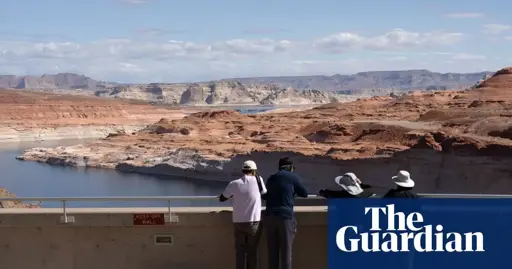Reservoir lost 27.8m acre-feet of groundwater in 20 years, Nasa study finds, vanishing ‘twice as fast as surface water’
The Colorado River basin has lost 27.8m acre-feet of groundwater in the past 20 years, an amount of water nearly equivalent to the full capacity of Lake Mead, the largest reservoir in the United States, a new study has found.
The research findings, based on Nasa satellite imagery from across the south-west, highlight the scale of the ongoing water crisis in the region, as both groundwater and surface water are being severely depleted.
“Groundwater is disappearing 2.4 times faster than the surface water,” said Jay Famiglietti, a hydrologist at Arizona State University and the study’s senior author.
“Everyone in the US should be worried about it, because we grow a lot of food in the Colorado River basin, and that’s food that’s used all over the entire country,” he added. “These days, we’re also supporting a number of data centers and computer chip manufacturers, and these are essential to our economy.”



The amount of freshwater used globally is tiny in comparison to the salt water in the oceans.
In case we desalinated the entire amount of consumed freshwater and dumped all the salt from that in the oceans, it would be impossible to even detect a rise in the oceans salt levels, provided that it was distributed properly and not just dumped in one location.
Water is also a cycle. It eventually returns to the ocean one way or the other after we’ve used it. With proper planning, we could theoretically borrow the water and mix the salt back in when it’s returned to the sea.